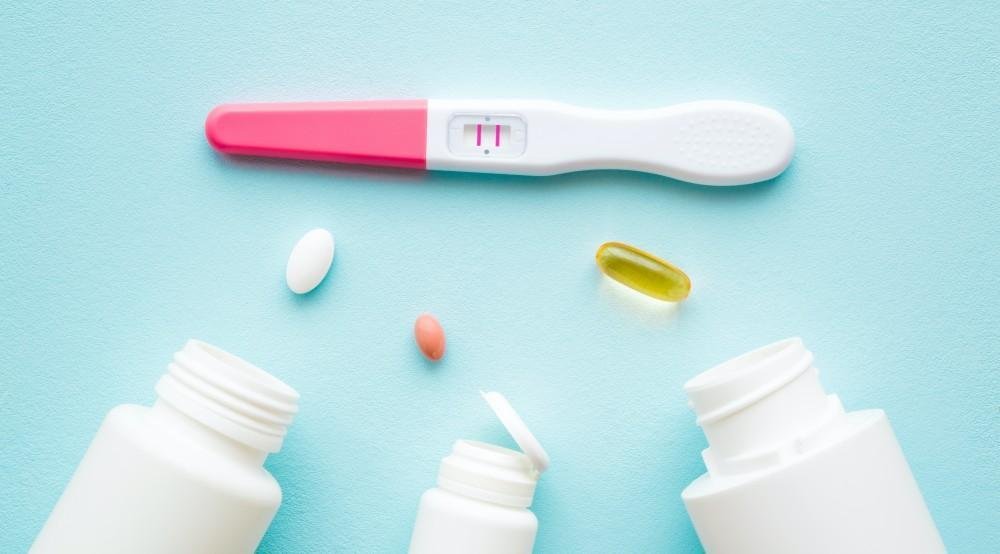Pregnancy is a beautiful journey—but let’s be real, it comes with a lot of questions. One of the most common? Which are the best prenatal vitamins to take? You’re not alone in wondering. Whether you’re planning, just found out you’re expecting, or you’re already into your second or third trimester, getting the right nutrients is key for both you and your baby. This guide will walk you through the essentials—backed by science and simplified just for you.
Why Are Prenatal Vitamins So Important?
Prenatal vitamins are specially formulated to support your body during pregnancy. They fill in the nutritional gaps that your diet alone might not cover. Even if you’re eating healthy, your body needs extra support while growing a whole human.
Prenatal Vitamins Benefits at a Glance:
- Promote baby’s brain, spine, and organ development
- Support your immune system and energy levels
- Reduce risk of birth defects
- Help with hair, skin, and nail health during pregnancy
What to Look For in the Best Prenatal Vitamins
Here’s what science and doctors agree are essential components of the best prenatal vitamins for pregnancy:
1. Folic Acid (400–800 mcg)
Crucial for baby’s neural tube development and preventing birth defects. Look for prenatal vitamins with folic acid as a top ingredient—especially in the first trimester.
2. Iron
Pregnancy increases your blood volume, so you need more iron to prevent anemia. Choose prenatal vitamins with iron, unless advised otherwise by your doctor.
3. DHA (Docosahexaenoic Acid)
This omega-3 fatty acid supports brain and eye development. Prenatal vitamins with DHA are great for fetal cognitive growth.
4. Calcium and Vitamin D
Help build your baby’s bones and keep yours strong, too.
5. Iodine and Choline
Support brain development and hormone regulation.
Best Prenatal Vitamins by Trimester
Each stage of pregnancy has different nutritional needs. Here’s how to choose the right fit:
Prenatal Vitamins for First Trimester
Focus on folic acid, vitamin B6 (for morning sickness), and DHA. This is when your baby’s brain and spine are forming.
Prenatal Vitamins for Second Trimester
Iron, calcium, and vitamin D are crucial here for bone and muscle development.
Prenatal Vitamins for Third Trimester
Load up on omega-3s and magnesium. These support fetal growth and ease muscle cramps.

Specialized Needs? No Problem
Prenatal Vitamins for Hair Growth, Skin, and Nails
Hormones can do a number on your hair and skin. Look for vitamins with biotin, vitamin E, and collagen-supporting nutrients.
Prenatal Vitamins for Energy
Low energy? Choose a formula with B-complex vitamins, especially B12 and B6.
Prenatal Vitamins for Morning Sickness
Can’t keep anything down? Opt for gentle, food-based vitamins or those with added ginger or vitamin B6.
Prenatal Vitamins for Breastfeeding
You’re still providing nutrients to your baby after birth. Continue taking a prenatal or switch to postnatal supplements with iron, DHA, and vitamin D.
Prenatal Vitamins for Twins
Carrying multiples? You’ll need higher doses of folic acid, iron, and calcium. Always consult your OB-GYN for personalized advice.
Prenatal Vitamins Without Iron
If you have issues with iron (like constipation or certain medical conditions), go for prenatal vitamins without iron—but only if your doctor recommends it.
Are There Any Side Effects?
Yes, and they’re usually mild. Some women report:
- Nausea or constipation (often due to iron)
- Metallic taste
- Mild headaches
Tip: Take your vitamins with food and plenty of water. If one type bothers you, don’t hesitate to switch brands.
Final Thoughts
The best prenatal vitamins are the ones that match your unique body and needs. Whether you’re looking for prenatal vitamins for pregnancy, dealing with morning sickness, or need extra support for breastfeeding, there’s a scientifically backed option out there for you.
Always consult your healthcare provider before starting a supplement. Your body is doing amazing things—make sure it’s getting the right support every step of the way.
For more related articles, Click here

